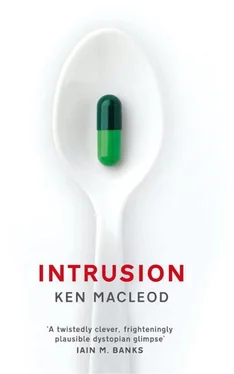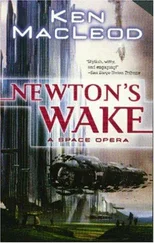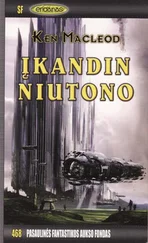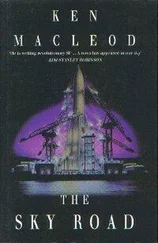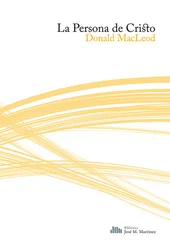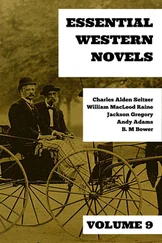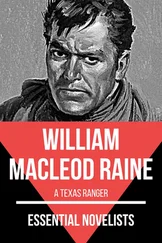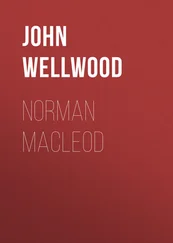The weather was sunny and not too warm. The leaves and grass along his route had a gloss to their green. As he whizzed along Camden’s back streets and canal banks and along the edge of Regent’s Park he sometimes glimpsed the whole scene as a vast, broken woodland, the forest of London. It was like when as a lad he’d seen from the hilltop how the landscape of Lewis wasn’t moor and field and bog with outcrops of rock, but a gnarly mass of rock with a thin overlay of peaty soil. The vision of the city as a forest uplifted him. It was almost utopian, and within it he felt the bike’s smooth engineered wooden frame and handlebars as an extension of himself.
On top of that elation, he was cheerful because the Ealing job was about to finish. The timing had worked out well, right to the half-day – he only had a morning’s work left. Ashid still had work to do, and Hugh had a waiting list of clients for renovation work, so he could easily have stuck around, just up the street. But at noon today he’d get his cash in hand, and tell Ashid he was taking a short holiday.
He also felt cheerful about leaving London for Lewis. The reason was one he could have done without. But if you looked at it the right way, it appeared positive. He didn’t care what Hope decided. He just wanted her to make her own decision, without social services and the Health Centre breathing down her neck. He’d never understood her objection to the fix. It annoyed him sometimes. That, he now realised, was one reason why he felt so cheerful. One way or another the matter was going to be resolved.
‘You see the future,’ Hope had told him, in a mutually exhausted moment last night. Then she’d explained. Tachyons and rhodopsin, good grief. Just as well she hadn’t brought that up in her latest confrontation with Fiona Donnelly! A gene for hallucinations – now that would have convinced Donnelly to back off! Aye, right. Even if there was anything to it, there was no way he was seeing the future. What sort of future had barbarians in it? If he was seeing anything real, it was people from the Dark Ages. Far more likely he was… maybe not seeing things – meaning, seeing not things but figments – he was convinced there was something objective behind it, though not necessarily what he saw. Which, to any outside observer, meant hallucinations. He was glad Hope had more sense than that science girl, Geena. Strange woman. There had been something odd about her intensity. Something she wasn’t letting on. She hadn’t told him why she was so interested. That query had been diverted by the stuff about police stops, at the end. More emotional than you’d expect.
Hugh made the connection with what Hope had told him about what Fiona had said so abruptly that he almost lost control of the bike. Geena had recently been questioned about Naxals . Of course, of course! And it hadn’t been one of the usual stops, the ones that she and Ashid had shared a nervous laugh about. She’d probably been hauled into the back of a van. She might even have been tortured. No wonder she was upset!
No wonder, also, that she had such a strong interest in their case. It went beyond the kind of curiosity that made sense for someone in her academic field – well beyond. Hugh thought he could understand why. For her it would be a kind of revenge on the state. A revenge of the weak, underhand and indirect, and therefore all the more dangerous and unpredictable.
That meant he had to be wary. For one thing, Geena might be using him, though he couldn’t see how. She might have been radicalised by her experience, and actually become a Naxal sympathiser herself. It wouldn’t be the first time such a thing had happened, not by a long chalk. For another, the state’s surveillance system might be even more sensitised to her than Fiona Donnelly’s demonstration had suggested.
Hugh already had a travel plan. It had come to him the moment he’d decided they had to leave. Now he had to complicate it a little.
At noon Hugh pocketed a few thousand pounds from the house developer, said goodbye to Ashid and wheeled his bike up the road towards Ealing Broadway. He selected a quiet alley between two boarded-up houses, took out his phone and called his father.
‘Oh, hello, Usdean,’ his father said. He sounded as if he was chewing something, then swallowing. Probably caught having his lunch. He was obviously outdoors. Hugh could hear the wind past the mike. ‘How’s things?’
‘Oh, fine, fine,’ said Hugh. ‘You and Mam?’
‘Bearing up, bearing up. What brings you to break radio silence?’
‘Och, Dad, it’s only been two weeks since—’
‘Yeah, yeah, just winding you up.’
‘Anyway, seeing as you ask, me and Hope and the boy were thinking of popping up to stay for a bit, if that’s OK.’
‘OK? It’s brilliant! When can we expect you?’
‘Maybe tomorrow or the day after? Thing is, we decided at the last minute, kind of, and just to save a wee bit of dosh on a non-advance fare we thought we’d hook a lift on a—’
‘Oh, sure, the Stornoway run. Give me a minute or ten, and I’ll tab you a code then fix a pick-up. Mid-evening suit you?’
‘Anything after, uh, eight or so.’
‘Aye, fine, no bother at all. Most of the overnight rigs pull out at ten, so you’ve got plenty of time.’
‘Ah, thanks, Dad.’
‘Just give us a bell when you’re on your way.’
‘Will do. See you soon.’
‘If we’re spared.’
And with a dark chuckle at that dour caveat he rang off.
Hugh stuck the phone in his pocket, mounted his bike, rode to the junction and turned left into Ealing Broadway. He rode west, through Hanwell, where he had to dodge goats, children, and driver-controlled motor vehicles, and into Southall, a welcome relief of neatness, colour and neon, its streets purring with bikes and autopilot electrics. The pavements bustled with men in suits or drab cotton salwar kameez, women in bright silk salwar kameez or saris. The only jarring note was the police presence. Hugh could see two foot patrols along the high street at a glance, and he could imagine the drone patrols he couldn’t see overhead. The borough hadn’t suffered the tidal wash of population, in and out, that its neighbours had over the past decades. It had remained a solid, respectable place, its only problem being that most of its population had Indian roots and continuing connections – business, political and personal. This made them doubly suspect: linked with the other side in the Warm War, and at high risk (as the phrase went) of recruitment or radicalisation by the enemy of both sides, the Naxals. The feeling of being watched from above tensed the back of Hugh’s neck.
A flicker of shadow passed over him. He glanced up, and saw a hang-glider about sixty metres overhead, its flight path along the line of the street. It seemed far too low, an emergency landing or a collision with a rooftop inevitable. Hugh glanced in his mirror, stuck out his left arm and pulled in to the side of the road, putting one foot down on the pavement. The hang-glider, now about a hundred metres further on and five metres lower down, wheeled, soared as if on a thermal updraught, and flew back towards him. Nobody else – not even the pair of cops a block away and almost beneath its path – took any notice of it. As it approached, Hugh clearly saw its frame of struts, like the finger bones of a bat, and the pilot’s blue face and fur waistcoat and boots. The eyes were goggled, but Hugh felt their gaze meet his for a split second as the glider passed above him. His head whipped around. The glider banked, vanishing over the rooftops.
Hugh looked around again. No one had noticed, though one or two people on the pavement were giving him puzzled glances. As he checked over his shoulder for traffic before pulling out into the road again, he saw out of the corner of his eye another flying object, this time moving across his line of sight. His gaze locked on to it and he felt his mouth open. Moving through the air, not far above the rooftops, from one side of the street to the other, was a contraption so weird that it was as if his brain was telling him that both it and the hang-glider were definitely hallucinations. It was a small airship, its glistening balloon distended in odd places like some enormous inflated pig’s bladder. The gondola slung beneath it was quite clearly a longboat made from cured animal skins stretched over a wooden frame. Three men, in hooded robes like those of monks, sat one behind the other in it, laboriously propelling it across the sky with long sweeps of what looked like elongated fans mounted on poles, which they moved like oars.
Читать дальше
